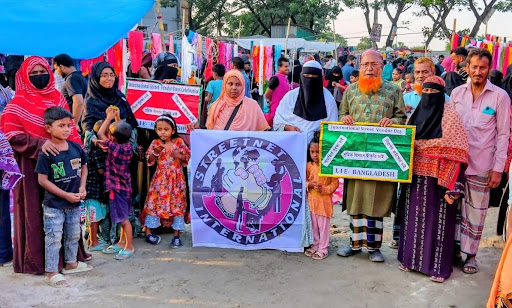 This day commemorates the national march by women on 9th of August 1956 to protest against the legislation requiring non-whites to carry a document proving they had permission to be in a white area. Celebrations on this day highlight the role of women in society and opportunities available for future generations to contribute meaningfully to South African society.
This day commemorates the national march by women on 9th of August 1956 to protest against the legislation requiring non-whites to carry a document proving they had permission to be in a white area. Celebrations on this day highlight the role of women in society and opportunities available for future generations to contribute meaningfully to South African society.
History
On 9 August 1956, the Federation of South African Women organised a mass demonstration against the imposition of pass laws on women in South Africa. More than 20,000 women, led by Lilian Ngoyi (a trade unionist and political activist), Helen Joseph, Albertina Sisulu, and Sophia Williams-De Bruyn, took part in the multi-racial march to the Union Buildings in Pretoria, to deliver a petition to the Prime Minister JG Strijdom.
 On the way to the Union Buildings the women sang a freedom song: "Wathint’ abafazi, Strijdom!"
On the way to the Union Buildings the women sang a freedom song: "Wathint’ abafazi, Strijdom!"
"wathint’ abafazi, wathint’ imbokodo, uza kufa!"
This translates as "When you strike the women,you strike a rock, you will be crushed you will die!"
The phrase "wathint’ abafazi, wathint’ imbokodo" has come to represent women’s courage and strength in South Africa.
Presently
Around the world and in South Africa, women are is inhibited by various factors which also contributes to unemployment, this includes inequality in access to education and training, productive resources, household responsibilities and gender stereotypes. The informal sector is a source of sustenance for the majority of the poor, unskilled and socially marginalised population, especially women. Many of whom are single parents.
StreetNet stresses for government to assist and do more in the following areas:
- Labour rights (freedom of association, right not to be discriminated against, equal opportunities, etc.)
- Employment and income security (including security of workplace)
- Access to social protection (including maternity protection and health cover)
- Right to representation in social dialogue and collective negotiations.
 Rosheda Muller, Vice President of the South African Informal Traders Alliance commented that Women’s Day has become synonymous with the continuous struggle women face on an almost daily basis to extricate themselves from the shackles of gender oppression. Many battles have been fought and many have been won in our quest for emancipation, but the war is far from over.
Rosheda Muller, Vice President of the South African Informal Traders Alliance commented that Women’s Day has become synonymous with the continuous struggle women face on an almost daily basis to extricate themselves from the shackles of gender oppression. Many battles have been fought and many have been won in our quest for emancipation, but the war is far from over.
"It is not a secret that women are the foundation of the informal economy and constitute upwards of 65% of the informal trader base nationally. In real terms their role as breadwinners are undeniable and a stark reminder to the powers that be that society is built on the backs of our mothers and sisters. We seldom demand reward but merely request acknowledgement and respect. We possess willingness and zeal in abundance, and an unshakable belief in ourselves to prevail….All strength to us!"


